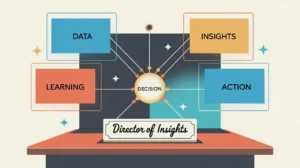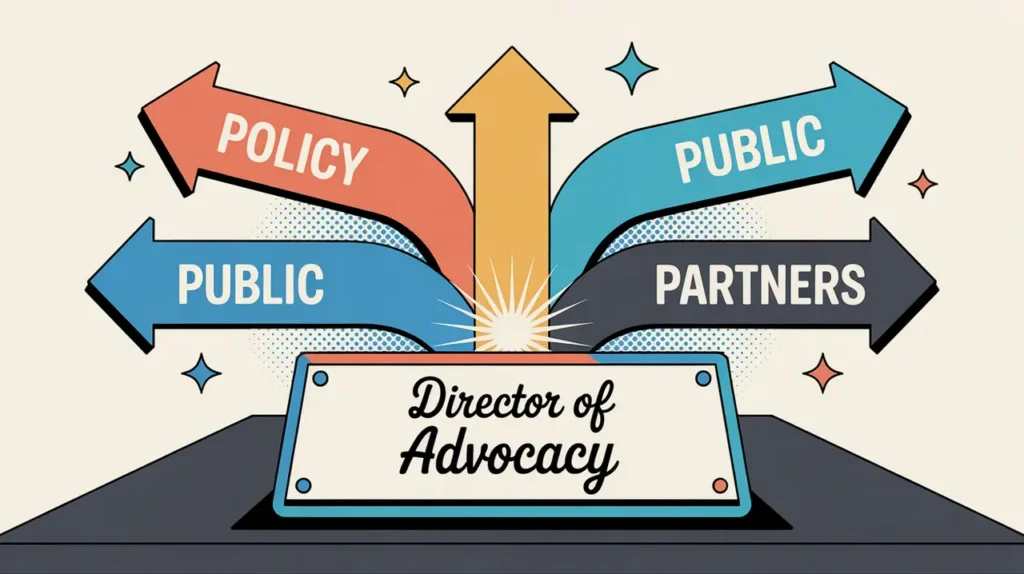What Does the Crisis Specialist Role Involve?
A crisis specialist provides subject matter expertise and operational leadership in preparing for, responding to, and recovering from emergencies, disruptions, or critical incidents. This involves designing response protocols, coordinating operational activities, conducting risk assessments, advising teams on best practices, and ensuring compliance with humanitarian, legal, or regulatory standards. The role typically sits within programs, operations, risk management, or humanitarian response functions depending on the organization’s structure. In both nonprofits and social enterprises, crisis specialists play a key role in strengthening organizational readiness and ensuring that responses are effective, coordinated, and contextually appropriate.
At What Level does this Role Operate?
Mid to Senior Level: This role typically reports to a crisis response lead, director of programs, or director of risk. Crisis specialists are expected to work with a high degree of autonomy, applying technical knowledge to guide operations and support decision making during emergencies.
Relative Employability: Crisis specialist roles are consistently sought after in humanitarian organizations, nonprofits operating in volatile environments, and social enterprises delivering critical services. Their combination of technical expertise and operational experience makes them highly employable across multiple sectors.
Relative Pay Scale: Within nonprofits and social enterprises, crisis specialist roles sit in the mid to upper mid pay bands, reflecting their specialized knowledge and significant operational responsibilities.
What are the Key Responsibilities and Activities?
- Develop and refine emergency response protocols, plans, and tools
- Provide technical advice and operational support during crises and emergencies
- Conduct risk assessments and scenario planning to inform organizational preparedness
- Coordinate with internal teams and external partners to implement response strategies
- Support real-time decision making by analyzing information and advising leadership
- Ensure compliance with humanitarian standards, legal requirements, and donor regulations
- Train staff and partners on crisis response procedures and best practices
- Contribute to after-action reviews and organizational learning on crisis response
What Core Competencies and Qualifications are Needed?
Required Qualifications and Experience
The following reflect common qualifications and experience expected for this role, while recognizing that pathways may vary by context, organization, and region.
- Relevant academic background in emergency management, public health, international development, risk management, or a related field, or equivalent professional experience
- Several years of experience in emergency response, humanitarian operations, or crisis management
- Strong technical understanding of crisis response frameworks, risk assessment, and operational coordination
- Experience advising teams and leadership during emergencies
- Proven ability to design protocols and train others effectively
Key Competencies
- Technical expertise in crisis management and emergency response
- Analytical and strategic thinking under pressure
- Strong communication and advisory skills
- Operational coordination and planning abilities
- Training and capacity-building experience
- Situational awareness and sound judgment
How are AI and Automation Shaping this Role?
An AI-native crisis specialist will look to AI and automation to strengthen monitoring, forecasting, and operational coordination. They can use AI tools to analyze real-time data from multiple sources, identify emerging risks, and support scenario modeling. Automation can help manage alerts, logistics workflows, and reporting, allowing specialists to focus on strategic analysis and operational decision support. By integrating AI thoughtfully, crisis specialists can enhance both the precision and agility of organizational responses.
What Career Pathways and Transferable Skills are Associated with this Role?
Crisis specialist roles can lead to senior crisis leadership positions such as crisis response lead, director of emergency operations, or director of risk and resilience. The skills developed in risk analysis, protocol design, and operational advising are transferable across nonprofits, social enterprises, humanitarian organizations, international institutions, and government agencies. Professionals in this role often move into strategic leadership roles that shape organizational preparedness and response at scale.







